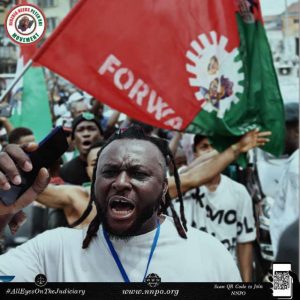Nigeria, South Africa others rank poor on 2024 global crime index

Nigeria, alongside other African nations, despite much hyped efforts at promoting stability and crime reduction, several African countries including South Africa, Angola and Nigeria, continue to struggle with high crime rate, which significantly impact their economies.
This is evident in deterring investments, impeding business growth, and limiting job creation opportunities.
The Index serves as an estimate of the overall crime level in a city or country, categorizing levels below 20 as very low, 20-40 as low, 40-60 as moderate, 60-80 as high, and above 80 as very high.
It considers survey responses on the general perception, feelings of safety, concerns about specific , property and violent crimes. The index captures public sentiments on safety, worries and assessments of property and violent crime extents.
According to the world renowned agency, Numbeo, here are the 10 African countries with the highest crime index in 2024.
South Africa
South Africa leads the list with a crime index of 75.4, highlighting the pervasive nature of criminal activities. Issues such as high unemployment, economic inequality, and urbanization have been contributing factors, including armed robberies and carjackings, remain significant concerns, demanding a comprehensive approach to address the root causes.
Angola
Angola follows closely with a crime index of 66.5. Despite its post-civil war economic growth, challenges persist in ensuring a secure environment. Issues such as political instability, corruption, and a lack of effective law enforcement contribute to the elevated rates.
Nigeria
Nigeria, with a crime index of 66.2, faces a complex set of challenges, including insurgency, cybercrime, kidnappings, and communal clashes. The country’s vast population, economic disparities, and inadequate law enforcement infrastructure exacerbate the situation, requiring targeted interventions.
Somalia
Plagued by decades of conflict and instability, Somalia ranks fourth with a crime index of 65.2. The absence of a strong central government, coupled with the influence of extremist groups, contributes to a challenging security environment. Efforts to establish stability and strengthen law enforcement remain critical.
Namibia
Namibia’s crime index 63.9 reflects challenges associated with economic inequality, unemployment, and urbanization. Despite its natural beauty and resource wealth, addressing these socio-economic issues is paramount to improving overall security.
Mozambique
Mozambique has a crime index of 63.7. The country grapples with the impact of armed conflict, particularly in the northern regions. Addressing both the root causes and immediate security concerns is crucial for sustained improvement.
Cameroon
Cameroon, with a crime index of 63.5, experiences challenges related to internal conflicts, particularly in regions such as the Anglophone areas. Political tensions and economic disparities contribute to the overall crime scenario.
Zimbabwe
Zimbabwe’s crime index of 60.9 underscores challenges associated with economic instability and political uncertainties. Efforts to address corruption and strengthen institutions are vital for creating a safer environment for citizens.
Libya
Libya faces ongoing security challenges, with a crime index of 60.4. The aftermath of the Arab Spring and the absence of stable governance have allowed criminal networks to thrive. Rebuilding institutions and fostering national unity are crucial steps for addressing the problems.
Ivory Coast
Ivory Coast rounds off the list with a crime index of 57.1. While the country has made significant progress since the 2011 post-election crisis, challenges related to political stability and economic disparities persist, affecting overall security.
![]()





